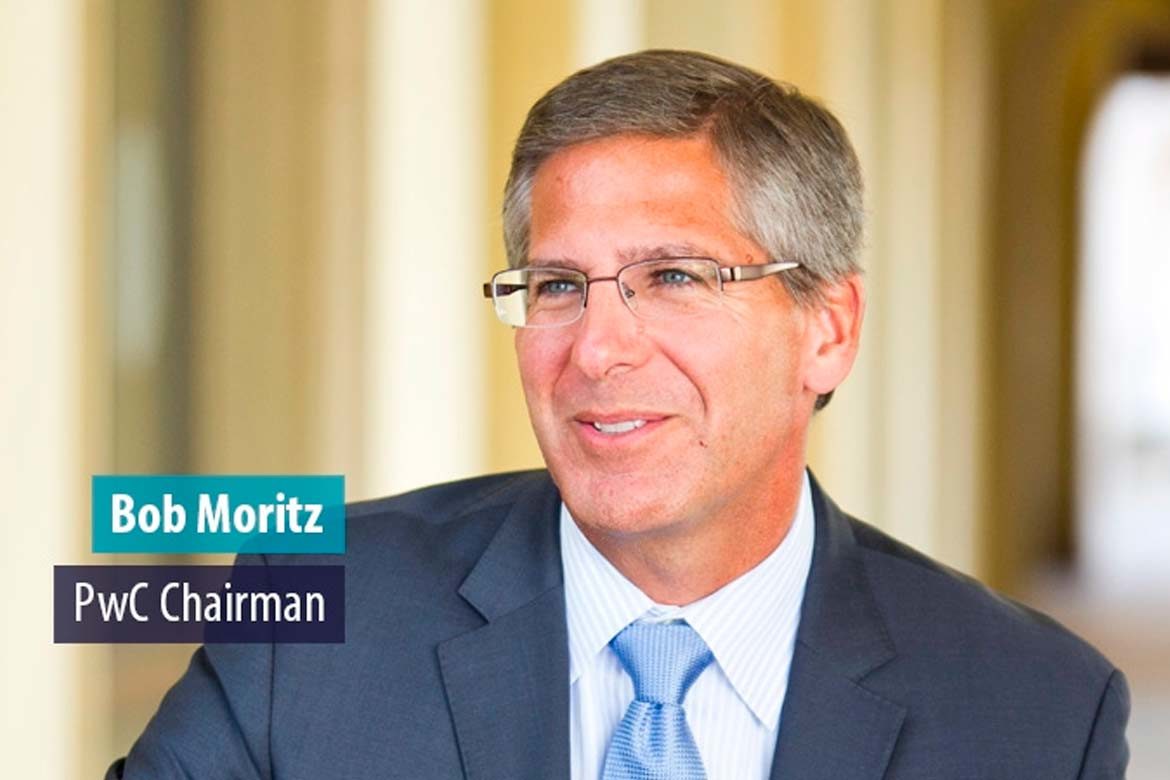5 de abril de 2018 – Following this year’s PwC survey of global CEOs, Chairman Bob Moritz has offered four guidelines to CEOs operating in today’s dynamic business environment. Rather than focusing on solely maximising quarterly growth for shareholders, Moritz suggested that CEOs should prioritise long-term value in a way that also benefits customers, employees, and society-at-large.
PwC’s 21st Global CEO report has taken in the opinions of some 1,300 CEOs from around the world, to summarise the sentiment of Chief Executive Officers relating to the economy, and society as a whole. While the survey found that positive sentiment among global executives is now at its highest rate in over seven years – with nearly 60% of those in the top job now believing the world wide economy will grow over 2018 – there is still plenty to give business leaders sleepless nights over the coming months.
Today’s global business leaders have to cope with an economy in the grip of geopolitical uncertainty, populism, and terrorism, among other threats. Brexit talks, the prospect of Catalonian secession, and China’s imposition of its vision for a Chinese 21st century are all likely to keep CEOs on their toes through 2018 and beyond, coupled with the looming prospect that technological disruption through automation, quantum computing, and robotics. According to another report from consultancy McKinsey & Company, while less than 5% of jobs can be completely replaced by technology, over 60% of all work activities could be automated by 2055.
Amid this sea of changes, according to Bob Moritz, Chairman of PwC, there also seems to be a growing divide between global economic growth and social progress. Three drivers of recent economic growth – globalisation, technological advancements, and financial focus (on GDP and shareholder gains) – have lifted billions out of extreme poverty and boosted productivity and innovation. Unfortunately though, they have also fostered a growing gap between rich and poor, with a growing number of people feeling that the current economic arrangement no longer promises them and their children a better life.
As income inequality remains a political flashpoint, fuelling anti-corporate discontent as well as a lingering productivity shortfall for the global economy, CEOs are increasingly under pressure to address this. Commenting on the latest incarnation of PwC’s CEO Survey, Chairman Bob Moritz has offered up four tips to CEOs to help arrest this challenging environment.
Metrics beyond the financial
Moritz believes that CEOs should look beyond just GDP and shareholder value to how the firm affects society. The PwC Chairman elaborated, “Financial performance is an essential element underpinning any market economy, but it cannot be the only measure of success in a globalised economy. Other, broader measures, reflecting target outcomes in societal terms, must also be considered. As business executives, we can supplement measures such as GDP and shareholder value with indicators of quality of life.”
In this case, firms should ask themselves how they contribute to society as a whole, before CEOs begin work to strengthen Corporate Social Responsibility (CSR) at their firms, performing actions that further the common social good. An emphasis on CSR does not necessarily conflict with the profit motive or self-interest of a firm, according to a report by consultancy Grant Thornton. CSR goals are increasingly aligned with profit goals: socially sustainable practices like carbon footprint reduction can lead to lower energy bills and charitable efforts provide tax relief. And with the rise of social media, companies that profit at the expense of the local community or environment can see demand for their products/services drop.
Companies are already working towards long-term goals of social sustainability. In June, PwC itself encouraged employees to get on their bikes in the name of charity, taking part in a massive bicycle relay tour of the British Isles for good causes. Elsewhere, consumer goods giant Unilever has announced a plan to have all its agricultural raw materials be sustainable by the year 2020. Similarly, McDonald’s has pledged to reduce its carbon emissions by 36% by 2030. The fast food retailer has also committed to using packaging from 100% recycled or renewable sources by 2025.
Create a beneficial place for technology in society
Automation and artificial intelligence has the potential to destroy a vast number of jobs. Big Four consultancy PwC estimates up to 38% of US jobs could be automated by 2030. While optimists will forward that automation will also create jobs, analysis from Joblift recently argued that the jobs created by AI will only amount to 19% of those lost.
Commenting that CEOs must anticipate this by steering the technology towards helping meet human needs (telemedicine and distance learning, for example), Moritz added that business leaders must work to create new industries and jobs that will, hopefully, be more creative and fulfilling than the programmable tasks taken over by by AI.
He stated, “CEOs are already laying the commercial groundwork to allow this socially positive innovation to take place. In addition, we need to help ensure that it takes place across the globe in a broad and inclusive way.”
Publicado en Consultancy.uk

